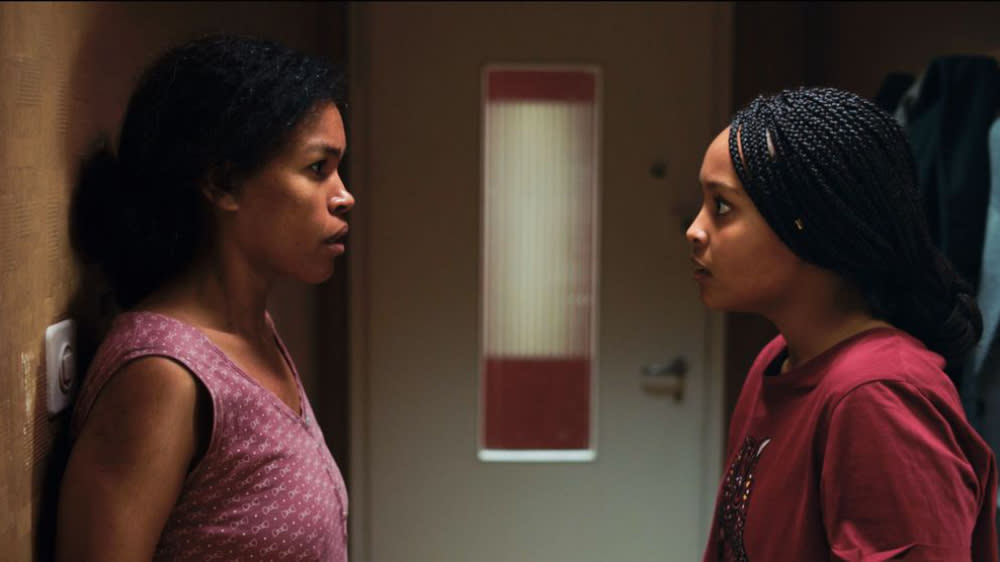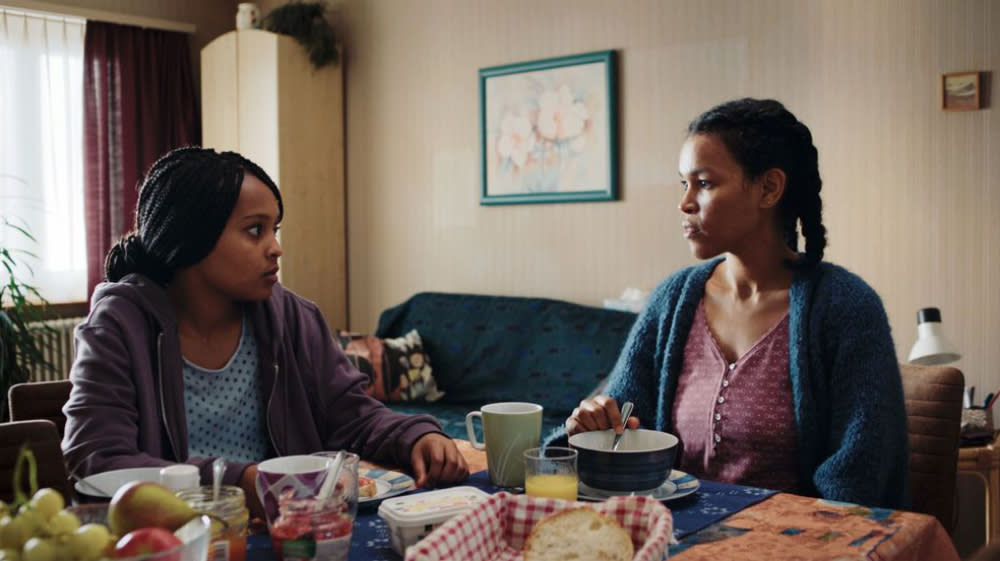Locarno First Look Winner ‘Semret’ World Premieres at Locarno

Zurich native Caterina Mona will bring her directorial debut “Semret” to the 75th Locarno Film Festival where it screens at the city’s Piazza Grande, an outdoor venue traditionally reserved for more popular plays. The film, which is being sold by German sales outfit Pluto Film, follows the difficult path to healing for the titular character of Semret: a reclusive immigrant mother from Eritrea, now living and working in Zurich. Between her difficulties with her daughter’s coming-of-age and her challenging career at a hospital, Semret must take down her walls in order to let others in.
“Semret” stars British newcomer Lula Mebrahtu (alongside Tedros Teclebrhan and Hermela Tekleab), whose understated physicality in the role of Semret expertly belies the violence of the character’s trauma as Semret moves through scenes with a palpable past. The dialogue in “Semret” bounces between Swiss-German and Tigrinya, continuing a trend toward multilingual European co-productions. Winner of Le Film Français Award at Locarno Pro’s 2021 First Look on Swiss Cinema, a pix-in-post showcase, “Semret” is produced by Cinédokké Sagl (Michela Pin) and Cineworx (Pascal Trächslin), along with Filmproduktion Basel GmbH and RSI Radiotelevisione svizzera.
More from Variety
'Tommy Guns' Review: A Sinuous, Surprising Military Drama Wrestles With Portugal's Colonial Legacy
Director Jeff Rutherford on His Feature Debut, Locarno Player 'A Perfect Day for Cairbou'

Courtesy of Pascal Mora
Variety spoke with Mona ahead of the film’s debut at Locarno.
Could you talk about what inspired the film and drew you to tell Semret’s story?
What interests me really is: How does trauma affect your life, and also the lives of your children or the people around you? And how can you overcome trauma if possible? How can you learn to live with trauma? Semret is a woman who has really suffered struggle and has something really dark in her past, so how can she try to have this normal life or build a normal life for her daughter? I moved into this cooperative building in the center of Zurich and there were two families from Eritrea, and the kids went to school with my kids. We became friends. I got to know the parents and I started to learn more about the history of the culture and the people who are fleeing the country and they came here to build up a better future for themselves and their children.
Was Semret based on someone in real life? How did you decide on this unique character to tell such a challenging story?
Yes, she is based on women I know. One more in particular who does not have her story but more her way of speaking and talking. Because that, to me, is character: Body and movement. The rhythm, and tone of voice. And then I found a woman who is very close to the character I had envisioned, and I would’ve wanted to work even more with her, but she had two jobs, sometimes three jobs, so she didn’t have that much time. But like Semret, she really detached from her own community. She was also a single mom.
The film follows Semret and her daughter, both together and apart. Can you talk a little bit about how you approached their narratives?
It is always a bit of a question, if it’s possible to go away and come back. I think there were moments where it was much more all over the place. There were other characters who had scenes by themselves in different versions of the script, but I think in the end it is the story of Semret and Joe. So I felt it was really O.K to go with Joe several times and just be with her and her friends, because it adds layers to the relationship with her mother.
How did scenes following Semret’s romantic life assist in the storytelling?
I think the romance part is very important in this specific case, because that’s her trauma. It is linked not to romance but sexuality. And she is completely frozen in that part of her life. She closed that chapter in her life somehow. And this man, who is just fantastic and everybody falls in love with him…. So I do think that’s the point in the end. It’s not that healing has not happened or does not happen in a way, because it’s not about that. The film is not the end, but that first step in the right direction.

Courtesy of Pascal Mora
Best of Variety
From 'The Sandman' to 'Blonde': Books Made Into Movies and TV Series That You Should Read
Jennette McCurdy's Provocative Book 'I'm Glad My Mom Died' Is Already a No. 1 Bestseller
Sign up for Variety’s Newsletter. For the latest news, follow us on Facebook, Twitter, and Instagram.
